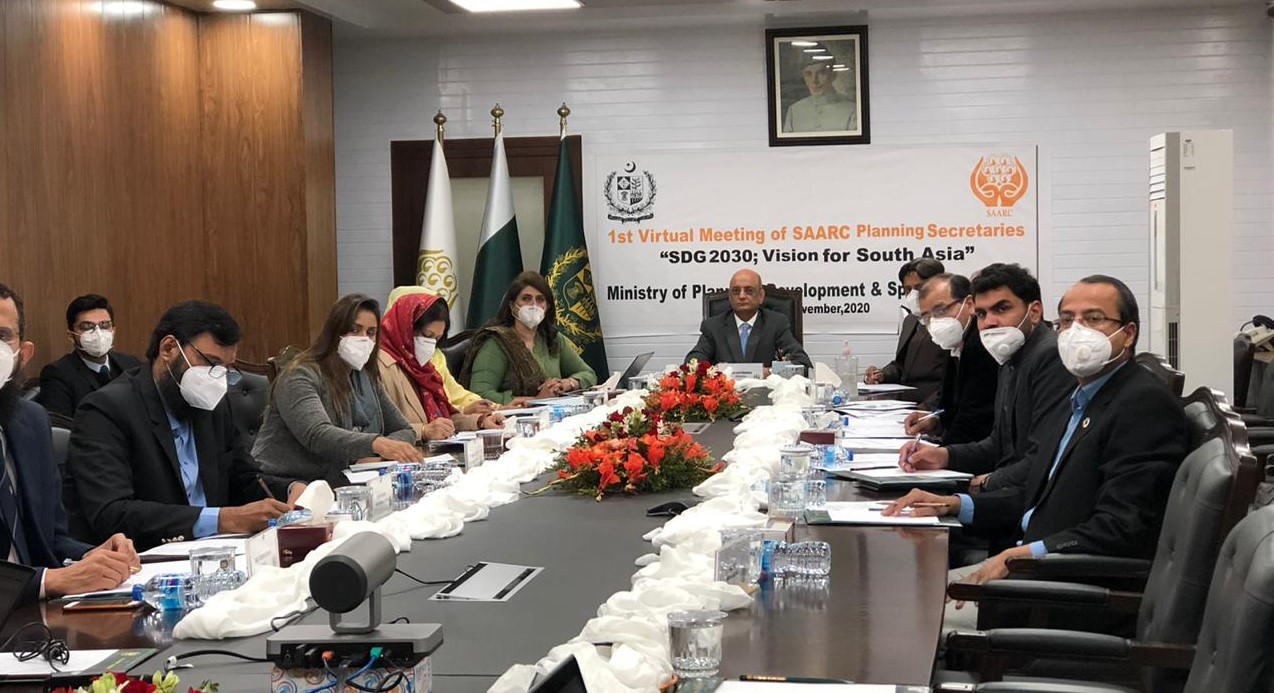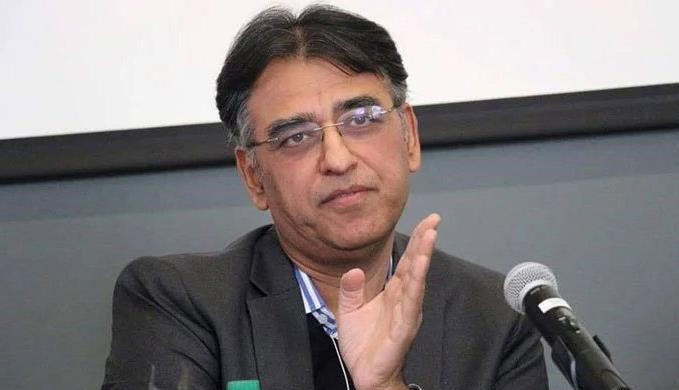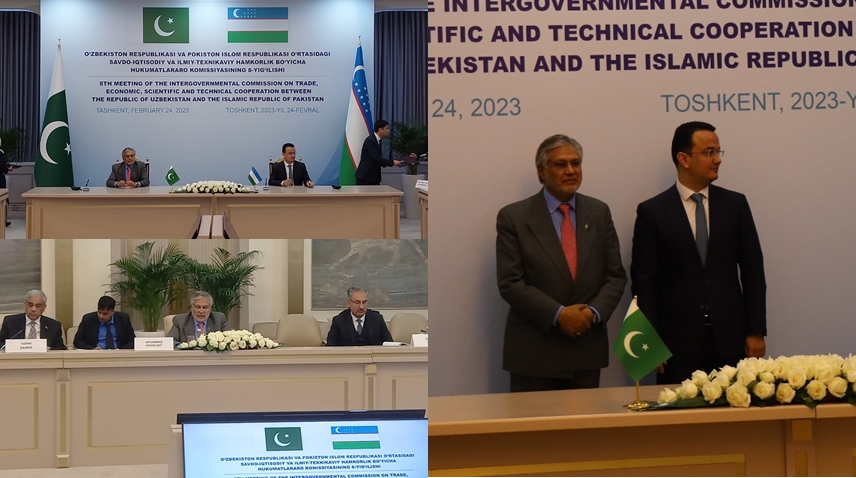Atta ur Rehman
Pakistan hosted first day-long virtual meeting of SAARC Planning Secretaries, chaired by Asad Rafi Chandna in Islamabad on Monday. All eight member states attended the meeting with their virtual presence.
The meeting extensively covered the subject of “Achieving Sustainable Development Goals (SDGs) 2030- Vision for South Asia.” The Planning Secretaries prepared the ground work for the “First Meeting of SAARC Planning Ministers” dedicated to the theme, “Shaping SAARC Vision 2030” to be held virtually on Wednesday, November 25, 2020.
The senior officials of Ministry of Planning, Member Social Sector, Chief Sustainable goals and Poverty Alleviation, along with officers of section and UNDP associated SDG unit, Chief International Trade and Finance, officials from Foreign office were part of official delegation.
In the welcome remarks, the chair emphasized that the spread of Covid19 with its impacts on health, education, jobs, and income across the member states is a challenge that warrants a review of national strategies for achieving SDGs.
It was asserted that special focus has to be given particularly on reducing poverty, improving health, quality education, decent work opportunities, addressing inadequate water and sanitation and promoting cooperation.
Asad Rafi Chandna said that future lies on fostering mutual cooperation, sharing knowledge, espousing shared prosperity, promoting integration and building partnerships in the region.
The SAARC forum discussed three key agendas which included (i) compilation of national approaches and strategies of SAARC member states on inclusive sustainable development – the agenda 2030, (II) impact of Covid19 on overall economic growth in SAARC member states (iii) strategy for collaborative action for mobilizing development financing especially in the post Covid19 scenario.
Pakistan recommended for a workable mechanism to be adopted by SAARC for transboundary challenges related to integrated water resources management and air pollution. A strategy is required to be formulated to foster the spirit of “leaving no one behind” as espoused by the Agenda 2030 for securing the rights of marginalized communities and minorities in member states.
It also recommended that each member country to adopt placement, operation & integration of real time Dashboard portal in their respective centres for monitoring, evaluation & improvement of their respective indicators. These member country portals then ought to be interlinked with a Master Dashboard portal at the regional level at the SAARC Secretariat for mutual concerted efforts for achieving the SDGs by 2030.
In relevance to impact of Covid19 on overall economic growth in SAARC member states, Pakistan urged member states for cooperation not limited to the health services only but also to cover pharmaceutical collaboration, personal protective equipment and expansion on the demands of post pandemic relief, recovery and rehabilitation.
It was also proposed that SAARC Comprehensive Disaster framework may be expanded in context of Pandemic on promotion of trade in health services through liberalization particularly to draw services of doctors and paramedics.
Pakistan urged member states to raise voice for mobilizing financing committed by the developed countries for achieving SDGs including all multilateral and bilateral agencies. Role of SAARC observer states, particularly those in region, may be enhanced to meet the development financing gaps.
The SAARC Headquarters prepared the draft of overall recommendations provided by each member state in the light of discussions held. It was mutually agreed that SAARC Headquarter would share the concerted document with all the member states for the “First Meeting of SAARC Planning Ministers” to be held on November 25, 2020. It is expected that the next SAARC Secretaries meeting would commence by April 2021.
The Secretary Planning, Pakistan, in his concluding remarks extended gratitude and applauded all the SAARC member states for the realization that mutual cooperation based on the principle of “leaving no one behind” is the pathway to regional prosperity. He said evolving a common strategy is critical for achieving SDGs while countering all the emerging challenges in the SAARC region including existential threat posed by Covid19 pandemic.
The forum largely agreed that transfer of technology from the technological advanced countries is one of the critical factors to mitigate the adverse impacts of COVID19 along with transformation of production, consumption and supply chain mechanism within the SAARC region.




